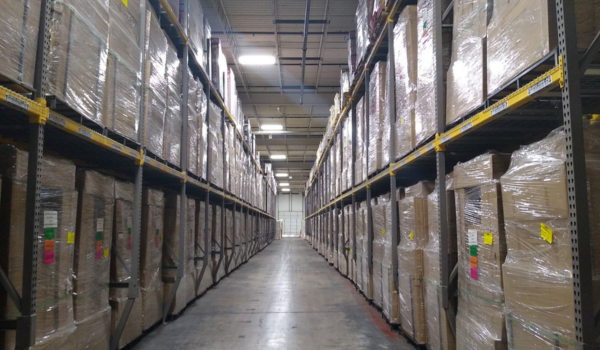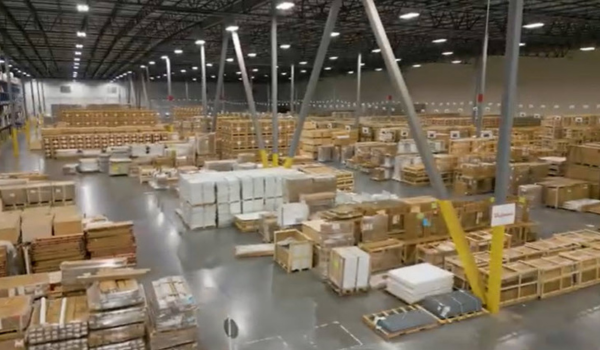Major manufacturers of retail fixtures are changing their business models. More specifically, they’re requiring full-pallet bulk order minimums and moving away from store-specific production runs. So what does that mean for retailers?
View this short video, and then read on for further details:
“These changes will have a huge effect on how many retailers acquire, store, and distribute fixtures for their new store openings and remodels,” says retail fixtures expert Phil Vines, Director of Business Development for Store Opening Solutions. “A lot of them are going to face challenges they never expected to deal with.”
Learn more below about this major industry shift as well as the problems it will likely cause retailers. Also, see what retailers can do to respond effectively to these new purchasing requirements.
What you’re used to: Manufacturers producing store-specific orders and shipping just in time
For many retailers, the standard way to handle your fixture needs has been to give fixture manufacturers your store project schedules and the floor plans for each respective store site.
The job of the manufacturer has been to quantify your fixture needs, adhere to your schedule, and complete manufacturing runs for store-specific orders. For each scheduled run, the fulfilled order would then be shipped directly to its corresponding store.
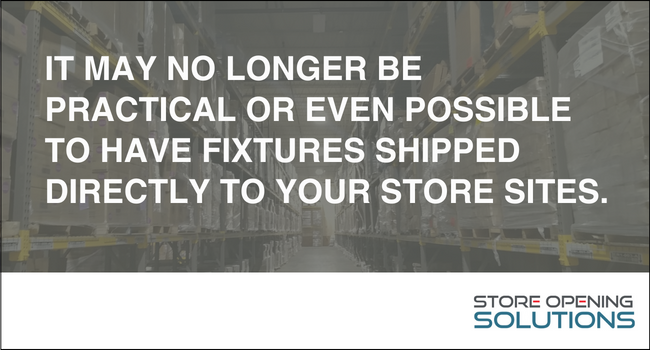
Today, however, manufacturers are making big changes. “Maybe you’re accustomed to manufacturers shipping fixtures directly to your store sites. But soon that may no longer be practical, or even possible,” says Vines.
What you need to be ready for: Manufacturers requiring bulk purchase orders
Like many other industries, fixture manufacturers are emerging from the pandemic with new approaches to doing business. Inflation, labor shortages, supply chain disruptions, and related factors have compelled them to make significant, long-term modifications to their production processes.
For example, rather than fulfill store-specific orders, fixture manufacturers are focusing on doing large-scale runs and building bulk pallets of exact fixture quantities. Changes like these are being done to both improve production efficiency and reduce man hours per order.
“That means you can’t just float, say, five store drawings per quarter to a manufacturer and expect them to handle things the way they used to,” says Vines.
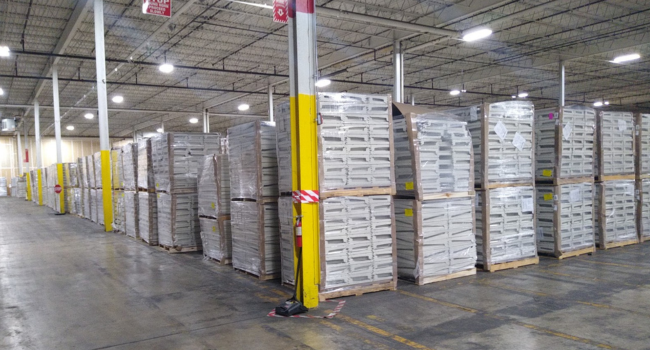
The effects on retailers: A growing task list and a new storage dilemma
The changes manufacturers are making will likely affect retailers in a number of significant ways. Consider these new challenges.
Taking over unfamiliar project take-off tasks
You may need to absorb project take-off tasks that had previously been handled by your manufacturers. This includes analyzing floor plans and quantifying the exact number of fixtures you need for a given store.
With somewhere around 40 to 60 fixture SKUs even in a basic store, Vines says that’s no small detail.
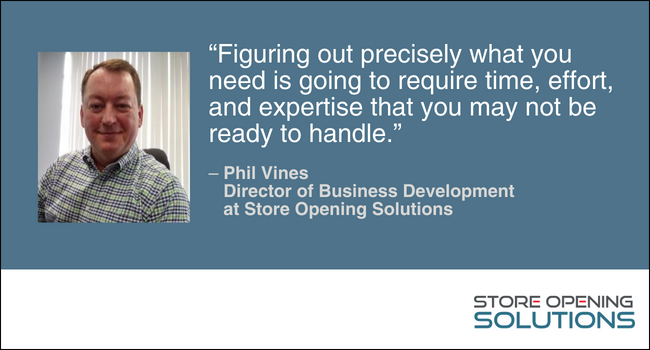
“Uprights, pegboard, base decks, kick plates, shelves of different sizes—figuring out precisely what you need is going to require time, effort, and expertise that you may not be ready to handle,” he said.
Identifying the best way to acquire store fixtures
As a retailer, you may face a difficult choice. If you don’t want to agree to the terms of bulk purchase ordering, you may have to opt for a distributor who sells standard store furniture, fixtures, and equipment (FF&E) – potentially at a 30%–100% markup.
You may also want to consider alternatives to buying new fixtures, like retrieving available fixtures from other stores, especially those that are closing.
“That’s certainly possible,” says Vines. “But it requires a number of carefully orchestrated steps to do it efficiently and cost-effectively.”
Using a storage solution without “tearing up your bottom line”
If you no longer can rely on store-specific orders shipped directly to sites, what do you now do with your fixtures, including the extra inventory resulting from bulk ordering?
Some might try to find in-house storage. But for many, this simply isn’t an option due to lack of space.
Others might consider utilizing their distribution centers. But Vines says this “remedy” may generate even more problems because distribution centers aren’t really set up to do that effectively.
Then there are the big-name carriers who, at least in theory, could take on your storage needs, especially for emergencies. But Vines says that can quickly add up to tens of thousands of dollars per month. “In the meantime, those fees are tearing up your bottom line.”

Finding reliable support for picking, packing, and shipping
Even if you think you’ve found a storage solution, either in-house or with a third-party warehouse, a significant hurdle still remains for your store openings and remodels: Your stored fixtures aren’t necessarily ready for shipment to store sites.
And whoever is now holding your pallets of fixtures won’t have the specialized knowledge required for efficient picking, packing, and shipping.
“They’re not prepared to break down those pallets and accurately reorganize them for store shipments,” says Vines. “In fact, retailers trying to work with warehouses have told me they’re running into various problems due to the lack of retail fixture expertise.”
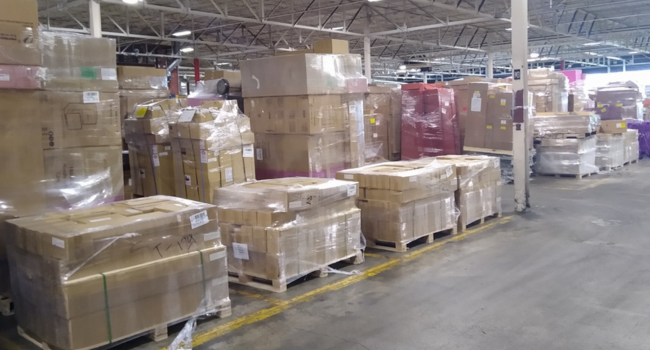
A comprehensive solution: Retail consolidation
For you to effectively handle the big changes in fixture manufacturing described above, you’ll need to do more than just weather a temporary storm. Fortunately, there’s a solution that can not only help you adjust to bulk order requirements in the short term but also help you develop a better system for the long run.
It’s called retail fixture consolidation. With this approach, a retail fixture consolidator receives and warehouses the FFE you need for new store openings and remodels. The consolidator also inspects, organizes, re-palletizes, and ships FFE to specific store sites precisely when they’re needed.
For more information, be sure to check out What to Do When Your Retail Fixtures Manufacturer Requires Bulk Purchasing.
Store Opening Solutions has been providing fixture consolidation services for nearly 30 years. If you’re facing new challenges as fixture manufacturers shift to bulk purchase orders, be sure to contact us to start a conversation.
About Store Opening Solutions
We support the strategic vision of retail organizations with focused expertise in the consolidation and installation of store fixtures and equipment. Our dedicated team embraces your vision and partners with you to create appropriate inventory control processes.




